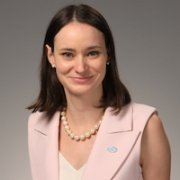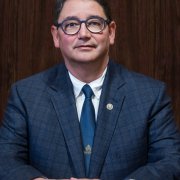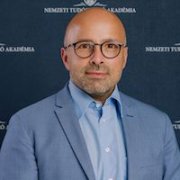Clinical Science Scholars Program at Semmelweis University
- Certificate Program

Unlock your potential in clinical research and advance your impact on medical innovation. Working with Semmelweis University, Harvard Medical School has designed an innovative certificate program for clinicians and clinician-scientists to equip you with the skills and expertise to advance clinical research in Hungary and Central Europe. Join a world-class learning experience and take your career to the next level.
- Blended
This program requires attendance at three intensive workshops — two in-person and one virtually.
Please see more program fee information below.
Certificate
This program offers HMS Associate Member status.
Nine Months, 3 Required Workshops; 5-7 Hours/Week
On This Page
Overview
Harvard Medical School’s Clinical Science Scholars (CSS) program at Semmelweis University provides advanced training in health care research and methods. Using a blended learning model that incorporates online tools, live virtual seminars and engaging workshops, the curriculum is focused on enhancing your skills at every stage of the research process–from writing grant proposals and launching new projects to analyzing data and presenting your results.
A blended, nine-month program, CSS is anchored by three workshops – two residential (at Semmelweis University in Budapest and at Harvard Medical School in Boston) and one live virtual workshop – that are designed to offer a mix of traditional and innovative teaching methods. Students will participate in interactive webinars – including review sessions by faculty and special seminars from leading experts – and have access to more than 85 pre-recorded, on-demand lectures.
Our flexible cohort model makes it possible to advance your knowledge while allowing you to continue meeting your current personal and professional responsibilities. The 2026–2027 program begins on July 27, 2026, at Semmelweis University in Budapest, Hungary.
Semmelweis University is an institution of higher education in Hungary and the Central European region within the areas of medicine and health sciences and a Hungarian representative in international rankings. With its 250 years of tradition, Semmelweis University is a center of knowledge built on the integration of education, research and health care.
Workshop 1
- July 27–30, 2026
- Budapest, Hungary
Workshop 2
- December 1–4, 2026
- Live Online
Workshop 3 and Completion Ceremony
- March 16–19, 2027
- Boston, MA
Learning Objectives
- Design and perform observational and experimental clinical research
- Analyze, interpret, and present clinical research data
- Write and revise successful grant proposals
- Lead clinical teams across a variety of health care settings
About the Program
In this immersive program, you will explore the latest advancements and best practices in clinical research. CSS is a rigorous training program that will further develop your skills and knowledge in clinical research methods. Throughout the program, you will learn alongside a talented group of peers collaborating to create a deeper and more enduring understanding of the topics.
The program emphasizes team-based learning, with scholars working together in teams to collaborate, discuss, and problem-solve while also learning from one another. In addition, scholars will have access to program faculty throughout the year for guidance and support.
The comprehensive program curriculum features monthly interactive webinars as well as more than 85 recorded online lectures. In addition to the core coursework, you can personalize your experience by choosing an elective (Secondary Analysis of Clinical Trials, Genetic epidemiology, or Cost-effectiveness and health decision making) that align with your interests. Throughout the program, scholars are expected to develop and submit a research proposal.
Program Format
A blended, nine-month program, CSS is anchored by three workshops – two residential (at Semmelweis University in Budapest and at Harvard Medical School in Boston) and one live virtual workshop – that are designed to offer a mix of traditional and innovative teaching methods. Students will participate in interactive webinars – including review sessions by faculty and special seminars from leading experts – and have access to more than 85 pre-recorded, on-demand lectures.
Who Should Apply
This program is designed for clinicians working in clinical research at the faculty level (or equivalent). Candidates holding an:
- MD
- PhD
- MBBS
- DMD
- DDS
- PharmD
- DNP
- An equivalent degree is eligible to apply
The review committee will consider candidates with a master’s degree for admission on a case-by-case basis.
Program Leadership and Faculty

Jamie M. Robertson
PhD, MPH
- Faculty Director, Global Clinical Scholars Research Training and Foundations of Clinical Research
- Senior Research Scientist, Brigham and Women’s Hospital
- Assistant Professor of Emergency Medicine, Harvard Medical School

Krisztina Fischer
MD, PhD, MMSc
- Associate Professor of Radiology, Harvard Medical School
- Faculty Director of Master of Medical Sciences in Medical Education, Harvard Medical School

Gyongyi Szabo
MD, PhD
- Mitchell T. Rabkin, M.D. Chair; Professor of Medicine; and Faculty Dean, Harvard Medical School
- Chief Academic Officer, Beth Israel Deaconess Medical Center
- Chief Academic Officer, Beth Israel Lahey Health

Béla Merkely
MD, PhD, MSc, DSc, FESC, FACC
- Rector, Semmelweis University
- President of the Hungarian Rectors’ Conference (HRC)
- Chairman, Sports Medicine Department, Faculty of Medicine, Semmelweis University
- Director and Chair, Semmelweis University Heart and Vascular Center

Zoltan Ungvari
MD, PhD
- Director, International Training Program in Geroscience, Semmelweis University & University of Oklahoma HSC

Péter Hegyi
MD, PhD, DSc, MAE
- Director, Semmelweis University | Centre for Translational Medicine
- Director, Semmelweis University | Institute of Pancreatic Diseases
Program Fee
Program fees for individuals affiliated with Semmelweis University are $11,000 (USD). The standard program fee is $17,500 (USD). Program fees do not include airfare, accommodation, meals, or educational materials.
| Program Fee | |
|---|---|
| Affiliated with Semmelweis University | $11,000 |
| Standard Program Fee | $17,500 |
Our team is excited to bring this collaborative and innovative clinical research training program to Central Europe. Working together, we will be building the research infrastructure of this region while enhancing your skills to be leaders in improving patient outcomes.


